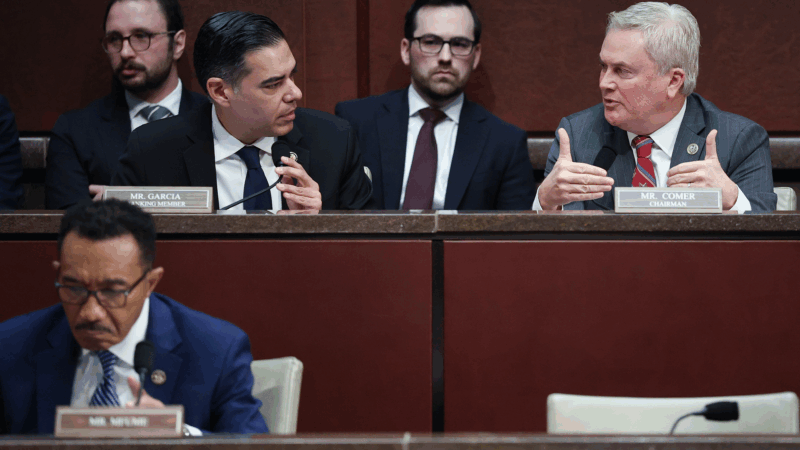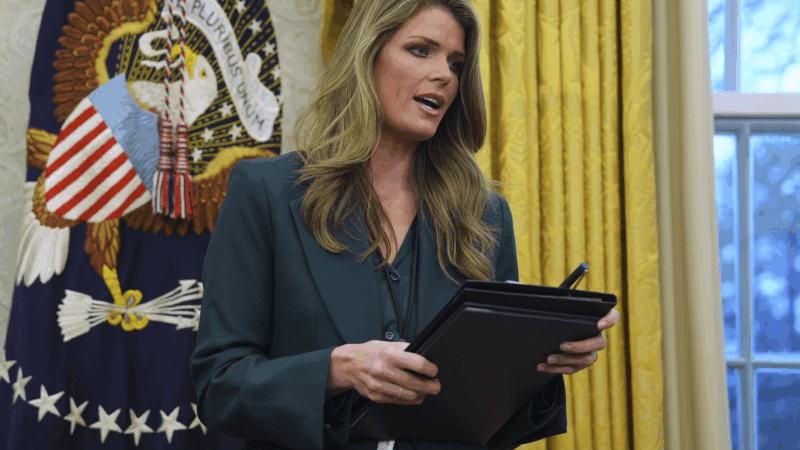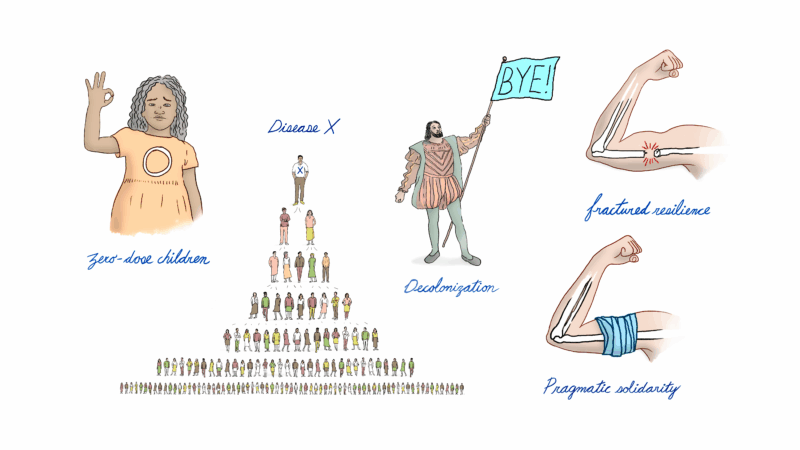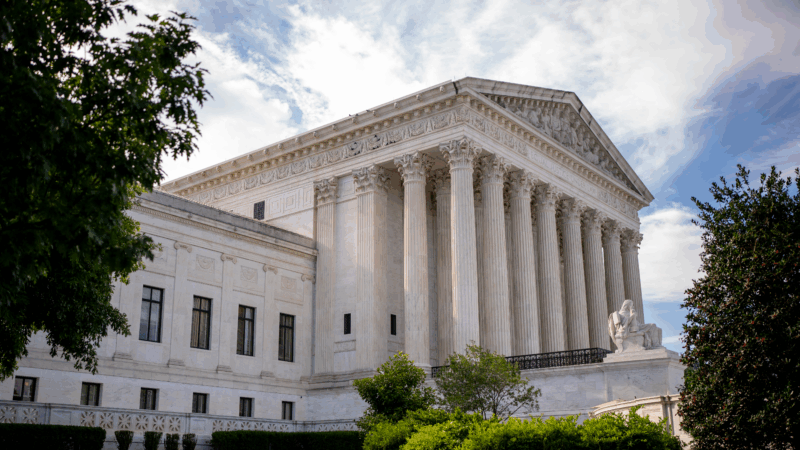Why are the Israel-Hamas ceasefire talks stuck? An explainer on the latest
TEL AVIV, Israel and DUBAI, United Arab Emirates — Arab mediators are working to secure a ceasefire deal between Israel and Hamas after weeks of concerted U.S. involvement, including secret direct talks with the group.
Efforts to secure a ceasefire are stuck at the same stumbling block that has stood in the way for most of the war: how to secure an agreement that frees hostages held in Gaza and permanently ends the war.
Mediators are racing against the clock as Israel slowly expands airstrikes in Gaza. Aid supplies, access to drinking water and fuel are also dwindling in the territory following a two-week long blockade by Israel, barring the entry of all goods, medical supplies and food.
Highlighting the wider regional dimension of the conflict, the U.S. struck Houthi targets in Yemen last week in response to the Iranian-backed group’s attacks on shipping in the Red Sea in support of Gaza. The airstrikes killed at least 53 people, most of them women and children, according to the Houthi-run health ministry.
Moreover, a new Israeli political firestorm could throw ceasefire talks further into disarray. Israeli Prime Minister Benjamin Netanyahu announced late Sunday that he seeks to fire his domestic security chief, who had helped lead ceasefire negotiations for most of the war.
Israel says it wants the immediate release of 11 living hostages, out of the 24 still believed to be held alive by Hamas in Gaza, and half of the 35 hostage bodies held in Gaza. In exchange, mediators say Israel would open its border crossings to allow aid into Gaza again and extend the ceasefire for another 50 days.
The basis of this proposal was drawn up by President Trump’s Middle East envoy, Steve Witkoff, who was in Qatar last week for ceasefire talks. But the U.S. has not published a firm timeline for reaching an end of the war — a key demand of Hamas.
The U.S. also says Hamas must immediately release U.S.-Israeli citizen Edan Alexander, who was serving in the Israeli military at the time of his capture in the Hamas attack Oct. 7, 2023.
Senior Hamas official Bassem Naim said in a statement the group would release Alexander, who is alive, and the bodies of four dual nationals as an initial gesture. Another Hamas official tells NPR those bodies belong to dual U.S.-Israeli nationals.
Naim says Hamas will do so on condition Israel commits to immediate talks toward a permanent ceasefire and an immediate troop withdrawal from Gaza’s border with Egypt — two conditions Israel is so far refusing.
Hamas has also said it is willing to free all its hostages at the same time, instead of in batches, if Israel agrees to a lasting truce and withdraws from Gaza, but Israel’s far-right government has rejected this.
A team of Israeli negotiators met with Egyptian mediators in Cairo on Sunday to discuss the hostage issue, the Israeli government said.
Egyptian officials with knowledge of the talks told NPR the Israelis came to Cairo to discuss the proposal of releasing half the living hostages, and are unwilling at this stage to discuss any other proposals that include timelines for ending the war or withdrawing from Gaza’s border with Egypt. The Egyptian officials spoke on condition of anonymity because they were not authorized to divulge details publicly.
How the initial ceasefire deal broke down
An initial ceasefire agreement went into effect the day before Trump’s inauguration in January. Phase one of the deal saw exchanges of Israeli hostages and Palestinian prisoners, partial Israeli troop withdrawals and a surge of humanitarian aid to Gaza.
The deal stipulated that by Mar. 1, six weeks into the deal, phase one of the agreement would be over, and Israel and Hamas would enter phase two.
This second phase was to begin with an agreement on permanently ending the war before the release of all living Israeli hostages held by Hamas in exchange for Israeli freeing high-profile Palestinian prisoners. It was also to include the withdrawal of the remaining Israeli troops from Gaza over a six-week period.

But Israeli Prime Minister Benjamin Netanyahu refused to enter phase two negotiations. His right-wing coalition wants to continue the war so long as Hamas rules there.
He has instead demanded the release of half of the hostages, living and dead, before beginning talks toward a final end to the war. Hamas accused Israel of sabotaging the initial agreement.
To pressure Hamas into these new terms, Netanyahu’s government has blocked the entry of all aid into Gaza since Mar. 2. Humanitarian organizations, Israeli rights groups and countries in Europe and the Mideast have said this violates international law and amounts to collective punishment.
Meanwhile, Israel has slowly increased its military strikes in Gaza. Israel launched an airstrike Saturday that killed at least nine people, according to Gaza’s civil defense group. Israel said they were militants or posing as journalists operating a drone intended to carry out attacks on troops.
A London-based aid group said eight of the dead were staff members carrying out charity work. The drone was being used to assess where to erect tents for displaced people and document the charity’s work, according to the Al Khair Foundation in London.
What the U.S. and Israel are proposing
U.S. Mideast envoy Steve Witkoff and U.S. National Security Council Senior Director for the Middle East and North Africa Eric Trager were in Qatar last week trying to salvage the ceasefire.
Witkoff told CNN Sunday that he proposed Hamas release five living hostages, including U.S.-Israeli dual citizen Edan Alexander, in exchange for a “substantial” release of Palestinian prisoners from Israeli jails.
The U.S. proposed an extension of the ceasefire beyond Ramadan and Passover — through late April — including “significant humanitarian assistance” to Gaza and negotiations toward a permanent ceasefire, the White House said in a statement.
The U.S. is demanding that this proposal be implemented beginning with the immediate release of Alexander, but did not publicize a specific date.
In the CNN interview, Witkoff referred to Saturday’s U.S. bombing of Houthi targets in Yemen and said, “I would encourage Hamas to get much more sensible than how they have been.”
Egyptian officials say mediators are now trying to bridge the gap between what Israel’s government has demanded and what Hamas might be willing to offer in the absence of any U.S. or Israeli guarantees for an end to the war at this stage.
Daniel Estrin reported from Tel Aviv. Aya Batrawy reported from Dubai. Abu Bakr Bashir contributed reporting from London.
Confused by all the notices issued for intense winter weather? Here’s your guide
The National Weather Service issues a litany of notices before and during inclement weather events. They can be important signals on how to respond.
A massive winter storm will hit large parts of the U.S. through the weekend
A large storm system is expected to hit this weekend, with snow and ice from Texas to the Carolinas and up the Eastern seaboard. The winter system could bring more than a foot of snow.
House Oversight panel votes to hold Bill and Hillary Clinton in contempt of Congress
Republicans on the committee have been seeking to question the Clintons as part of a probe into the government's handling of the Jeffrey Epstein case. The vote sends the matter to the full House.
Lindsey Halligan, Trump’s former personal attorney, exits Virginia prosecutor’s office
The move comes after a federal judge wrote in court document that the "charade of Ms. Halligan masquerading as the United States Attorney … must come to an end."
Global buzzwords that will be buzzing in your ear in 2026
Will it be a year of "fractured resilience"? Or "pragmatic empathy"? Will "MOUs" be the next global health strategy? Are we in a new age of "decolonization" — or of "localization"?
Supreme Court appears wary of allowing Trump to fire Fed’s Cook in closely watched case
The administration wants the authority to fire Lisa Cook, a Fed governor. Experts say that would undermine the independence of the central bank.








